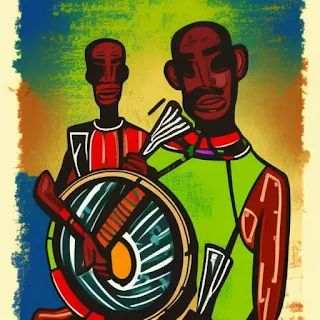Experience the Chicago African Festival of the Arts: Music, Culture and Food Over Labor Day Weekend
Experience the Chicago African Festival of the Arts: Music, Culture and Food Over Labor Day Weekend
Why Festival Lovers Flock to Chicago’s African Festival of the Arts
If you love lively outdoor festivals, world music, and global Black culture, the Chicago African Festival of the Arts (AFA) is your Labor Day weekend destination. Held every year in historic Washington Park on Chicago’s South Side, this four-day celebration transforms the park into a vibrant African village filled with art, music, food, and cultural experiences for all ages.
The AFA isn’t just a fair — it’s the largest Labor Day weekend celebration of African and African diaspora culture in the United States. Music lovers, foodies, families, and culture enthusiasts come together to dance, eat, shop, and experience authentic African traditions.
What to Expect at the African Festival of the Arts
- Live Music and Dance: Afrobeats, reggae, jazz, gospel, Randamp;B, and traditional drumming performances on multiple stages.
- Art Market and Crafts: Original paintings, sculpture, jewelry, textiles, and handmade fashion from Black artisans worldwide.
- Bank of the Nile Food Court: A foodie paradise with jollof rice, plantains, grilled kebabs, puff puff, and African street food favorites.
- Replicated African Village: Step inside a recreated African market village with cultural demonstrations, storytelling, and dance.
- Drum Circles: Join in the heartbeat of the festival — drum, dance, and connect with the community.
- Family and Kids’ Activities: Hands-on art workshops, cultural games, and youth performances.
- Cinema and Storytelling Pavilion: Films and conversations celebrating Black storytelling and filmmaking.
- Spirituality and Wellness Village: Yoga, meditation, African dance, herbal healing, and holistic self-care workshops.
Why Festival Travelers Should Go
The AFA is perfect for travelers who want an immersive Black cultural experience. It’s a blend of music festival, global marketplace, food fair, and cultural exchange — all in one. With its family-friendly vibe and global Black creative energy, it’s a must-do Chicago event for locals and visitors alike.
Planning Your Visit
- Dates: Labor Day weekend (September 1–4)
- Location: Washington Park, Museum District, Chicago South Side
- Tickets: Purchase online or at the gate (children often discounted/free on certain days)
- Bring: Comfortable walking shoes, cash/cards for food and vendors, picnic blanket or folding chair for concerts
For the latest updates, schedule, and ticket details, visit the official site: Africa International House – African Festival of the Arts.
Why It’s More Than a Festival
The event is organized by Africa International House, which promotes African heritage, challenges stereotypes, and fosters cross-cultural understanding all year long. Attending the AFA means supporting community empowerment while enjoying an unforgettable cultural experience.
Whether you’re a culture traveler, foodie, music lover, or family looking for an end-of-summer adventure, the African Festival of the Arts is one of Chicago’s most vibrant and meaningful Labor Day weekend events.




























